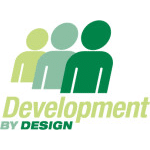Millennials and Gen Z: Gaining Leverage In Your New Job During a Pandemic

Those of you who know me already, are aware that for many years I have coached people to ramp up successfully in their new positions. Over the past 7 months during the pandemic, it’s been fascinating for me to research what basic truths about onboarding success have held fast, and what is wildly different about starting a new job in this unusual time in history.
My interviews with Millennials and Generation Z employees has been particularly intriguing.
Here are five tips to help early-career employees shine, in the early weeks of a new job during the pandemic. The comments will particularly apply to remote workers.
-
Leverage Your Tech-Savvy Skills:
This may seem like a no-brainer, but I believe there is something quite important here that must not be overlooked. Often when things come naturally to us, we don’t know how to leverage them fully as strengths. When you have grown up with a smart device at your side since childhood, and have taken classes online for years, you are in the unique position of having more expertise in working remotely than most of the more seasoned employees around you.
So, what does it mean, to leverage your tech-savvy expertise?
In my research, I interviewed one Millennial employee (let’s call him Kevin), who was hired by his new company just before the March shutdown. He has still yet to meet his boss in-person, but he made himself invaluable to his boss in a very short time, given the new emphasis on presentations through Zoom meetings and the need to convey detailed analysis in a visually stimulating and informative way. Analytics presented through graphs, rather than long columns of numbers, became important for discussing information in a virtual group format. Kevin’s technical skills created value for the team, sooner than they might have in a face-to-face working arrangement.
When you are tasked with preparing slides for your team, don’t simply populate the traditional PowerPoint templates. Ask your new manager whether you could take a run at a Prezi format instead, or a style that may have greater impact than the same old. And if that’s too “out-of-the-box” for your organization where standardization of format is important, see what simple techniques you can draw upon for enhanced graphics or punchier images. In one of my client companies, the annual “state of the nation” business update/town hall involved a rather flat, text-dense presentation format. That is, until a millennial employee with a job unrelated to marketing or communications was tapped to add a few new graphics. After he made a significant upgrade to the full presentation, the bar was raised ever after for future annual meetings.
-
Get Noticed Faster:
Back to Kevin. Because meetings at Kevin’s company have all been virtual since early March, it has been frankly easier to get more senior people “in the room”. Before the pandemic, a senior executive might have sent one of her managers to attend working sessions in her place, and only attending the final decision-making meeting with the senior team. Now, however, with no business travel to the company’s multiple locations, senior executives at Kevin’s company have been sitting in more often in working meetings. Kevin has found that in spite of only being with the company for a few months, he has ended up presenting his analysis and observations directly to an audience that includes the senior executives. In pre-pandemic times, he would have only been prepping his boss with background materials and speaking notes for the final executive meeting. Daunting? Yes, but it’s been less and less intimidating over time, and Kevin recognizes that his personal development has been ramped-up exponentially by the opportunities presented by the pandemic and remote work.
-
Get Connected:
You know how to do this. Don’t overlook what you already know. While the more senior employees around you have learned how to network in hallways and lunchrooms, you know how to build multiple and authentic connections remotely. You’ve already established relationships with people in other countries that you’ve never met in person, whether through online classes, gaming, or the global charitable initiatives in which you’ve had involvement.
So, use what you know and what you may already be more comfortable doing than more experienced employees. Reach out. Just make sure you are coming from a place of authenticity, versus trying to add a bunch of new names to a contact list. If your organization is on LinkedIn, how might you reach out individually to connect with a fellow employee whose background genuinely interests you? While respecting others’ time, are there questions you could ask through LinkedIn or a company messaging platform that will enable you to expand your network and expedite your learning? Unless it’s a specific task-oriented question that you have initially, I encourage you to use your non-core hours to do this connecting, but definitely to leverage what you already know to grow your professional connections.
-
Look for Reverse Mentoring Opportunities:
I have consulted organizations that implemented “reverse mentoring” programs involving someone in their early career, partnering with a senior executive, with the explicit purpose of having the early career person provide the mentoring, instead of vice versa. The notion is that the younger, newer employee has a perspective that can help the more seasoned employee to be more innovative, to challenge the status quo, to apply newer ways of seeing things, to be more connected to a younger customer cohort, or to help them appreciate how their leadership is impacting the motivation and retention of the youth talent pipeline.
You may want to start small and respectfully, through your manager, by asking whether there are any initiatives that would benefit from adding the perspective of someone junior in their career, to the conversation.
-
Remember, No One Else Has Been Here Either
Usually, being the newbie is fraught with feelings of insecurity and discomfort, with ambiguity. Guess what’s great about joining a new company during a pandemic?? It frankly levels the playing field. No one else in your organization has worked at this company during a pandemic either! So, many of the entrenched methodologies aren’t applicable anymore. Your ability to bring “fresh eyes” to business and organizational challenges is a bonus. Innovative thinking that is not based on “how we’ve always done it”, it is something that others will have to work harder at than you. You won’t have nearly as much to “unlearn”.
So, shoulders back. Everyone around you has insecurities and discomfort about ambiguity too, and ironically, your newness may be just what’s most needed.
Read more posts about Individual Leadership
